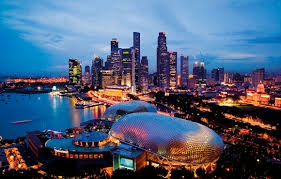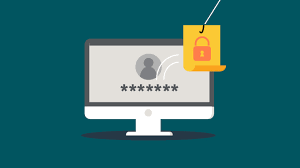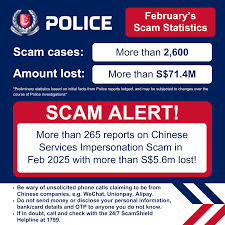Singapore is generally a safe travel destination, and you should exercise normal safety precautions—basically, using common sense and being alert, as you would in Australia.
Safety
Violent crime against tourists is rare.
Petty crime like theft and pickpocketing can occur, especially in tourist areas and public transport
Scams are common, particularly:
Phone/text scams impersonating officials trying to get personal information
Property rental scams with fake landlords and listings
Terrorism remains a possible threat
Unauthorized public demonstrations are illegal (permits required for public gatherings)
Health
Medical facilities are high standard but expensive – upfront payment often required.
Personal medication may need approval, even in transit
Disease risks include dengue fever, Zika virus, and other insect-borne illnesses
Smoke haze can occur from June to October
Local Laws
Stringent drug laws with severe penalties, including mandatory death penalty for some trafficking offenses
Many actions that are legal in Australia carry penalties in Singapore (smoking in public, spitting, chewing gum, littering, jaywalking)
Alcohol consumption is restricted in public between 10:30pm-7am
E-cigarettes and vaporizers are illegal
Drink driving, theft, and assault carry mandatory penalties
“Outrage of modesty” offenses are taken very seriously
Travel Requirements
Electronic Singapore Arrival Card required before arrival
Medicinal cannabis is prohibited, even during transit
Visa requirements apply for certain passport holders
The document emphasizes that the standard advice level is “Exercise normal safety precautions” and was last updated on March 3, 2025.
Comprehensive Tourist Guide to Singapore
Safety & Security
General Safety
Singapore consistently ranks as one of the safest countries globally for tourists. The city-state maintains extremely low crime rates through strict law enforcement and extensive surveillance. While violent crime against tourists is rare, remain vigilant about:
- Petty theft and pickpocketing in crowded tourist areas, MRT stations, and Changi Airport
- Bag snatching in busy hawker centers and shopping districts
- Drink spiking in nightlife areas (Clarke Quay, Boat Quay)
Cybersecurity
Singapore faces sophisticated cyber threats despite its technological advancement:
- Public Wi-Fi risks: Free networks at shopping malls, cafes, and MRT stations may be vulnerable. Use a VPN when connecting to public Wi-Fi.
- Impersonation scams: Scammers frequently pose as Singapore government officials (Ministry of Health, Immigration & Checkpoints Authority), banks, or telecom companies through calls or text messages.
- QR code scams: Verify QR codes before scanning, especially at tourist attractions or restaurants.
- ATM security: Use ATMs inside banks when possible and cover your PIN.
- E-commerce scams: Be cautious with online shopping platforms and verify sellers before making purchases.
The Singapore Police Force offers the ScamAlert website, which provides updated information on common scams targeting tourists and residents.
Climate & Natural Considerations
- Monsoon seasons (December- March and June- September) bring heavy rainfall and potential flash floods
- Heat and humidity remain high year-round (average 27-31°C/80-88°F)
- Smoke haze from regional forest fires can occur from June to October, affecting air quality
- Singapore’s National Environment Agency (NEA) provides daily air quality updates
Transportation
Public Transport
Singapore’s public transportation system is exceptional:
- MRT (Mass Rapid Transit)
- Extensive network covering most tourist areas
- Clean, efficient, and punctual
- EZ-Link or Singapore Tourist Pass recommended for unlimited travel
- Operating hours: 5:30am to midnight (approximately)
- Strict no-eating/drinking policy with fines
- Buses
- Comprehensive network reaching areas not served by MRT
- Air-conditioned and generally punctual
- Same payment methods as MRT
- Routes displayed at bus stops and via SG BusLah app
- Taxis & Ride-Sharing
- Metered taxis widely available and regulated
- Grab is the dominant ride-sharing app
- Surcharges apply during peak hours and for certain locations
- Taxis from authorized stands at airports and major hotels are reliable
- River Cruises
- Singapore River boat tours offer unique city perspectives
- Bumboats operate between major waterfront attractions
Getting Around Tips
- Download the SG BusLah or MyTransport Singapore apps for real-time updates
- Consider the Singapore Tourist Pass for unlimited travel (1-day, 2-day, or 3-day options)
- Most attractions are accessible via MRT, reducing the need for taxis
- Walking is feasible in many central areas with connected underground passages between MRT stations and major buildings
Local Laws & Regulations
Strict Enforcement Areas
Singapore enforces laws that tourists may find surprising:
- Zero tolerance for drugs: Possession can result in imprisonment; trafficking carries the death penalty
- Littering fines: S$300 for first offense
- Gum restrictions: Importing/selling chewing gum is prohibited (except prescription medical gum)
- Smoking limitations: Prohibited in most public areas, including covered walkways and bus stops
- Public alcohol consumption: Illegal between 10:30pm and 7am
- Jaywalking penalties: S$50 fine
- E-cigarettes ban: Complete prohibition on vapes/e-cigarettes
Cultural Sensitivities
- Respect local customs regarding modest dress in religious sites
- Remove shoes when entering temples, mosques, and some private homes
- Public displays of affection should be minimal
- Queue culture is strictly observed and respected
Major Tourist Areas & Safety Considerations
Marina Bay / Downtown
- Attractions: Marina Bay Sands, Gardens by the Bay, ArtScience Museum
- Safety: Well-policed with extensive camera surveillance
- Transportation: Multiple MRT lines (Circle, Downtown, North-South)
- Tips: Crowded during light shows; watch belongings in dense crowds
Sentosa Island
- Attractions: Universal Studios, S.E.A. Aquarium, beaches
- Safety: Private security throughout the island
- Transportation: Sentosa Express monorail from VivoCity, cable car, or walking
- Tips: Swim only in designated beach areas due to shipping lanes
Orchard Road
- Attractions: Premier shopping district
- Safety: High security presence, but watch for pickpockets in crowded malls
- Transportation: Multiple MRT stations along the stretch
- Tips: Underground connections between many malls provide air-conditioned walking routes
Cultural Districts (Chinatown, Little India, Kampong Glam)
- Attractions: Temples, heritage buildings, cultural experiences
- Safety: Generally safe but more crowded during festivals
- Transportation: Each has dedicated MRT stations
- Tips: Be respectful during religious holidays; modest dress is recommended for temple visits
Emergency Information
- Police: 999
- Ambulance/Fire: 995
- Non-emergency ambulance: 1777
- Tourism hotline: 1800 736 2000
- Australian High Commission: +65 6836 4100
Digital Resources for Tourists
- SG Secure app (security alerts and incident reporting)
- MyTransport Singapore app (public transportation)
- Visit Singapore app (official tourism guide)
- Grab app (ride-hailing)
- TraceTogether app (still useful for specific venues)
Singapore combines strict regulations with excellent infrastructure, making it one of the safest and most convenient destinations for tourists. The emphasis on law and order contributes to its remarkably low crime rate. However, visitors should remain aware of petty theft possibilities in crowded areas and various scams that target tourists specifically.
Security Threats for Tourists in Singapore
While Singapore is among the world’s safest travel destinations, tourists should still be aware of specific security concerns:
Scams and Fraud
Impersonation Scams
- Government official impersonation: Scammers call or text claiming to be from Singapore government agencies like the Immigration & Checkpoints Authority (ICA) or the Ministry of Health
- Police impersonation: Fraudsters claim you’ve violated laws and demand immediate payment
- Bank representative calls: Claiming account issues requiring personal information or fund transfers.
Tourist-Specific Scams
- Counterfeit goods: Especially in markets and at unofficial retailers
- Currency exchange scams: Offering favorable rates but providing counterfeit notes
- Fake attraction tickets: Sold at seemingly discounted prices but are invalid when presented
- Unofficial tour guides: Charging excessive fees for substandard or non-existent services
Property and Accommodation Scams
- Fake rental listings: Non-existent properties advertised online
- Bait-and-switch accommodations: Booking one property but being taken to a different, inferior location
Cyber Threats
Public Wi-Fi Vulnerabilities
- Data interception on unsecured networks in hotels, cafes, and shopping malls
- Man-in-the-middle attacks, where hackers intercept communications
- Fake hotspots with legitimate-sounding names set up to harvest data
Digital Payment Risks
- Skimming devices on ATMs, particularly in tourist areas
- QR code scams with altered payment codes leading to fraudulent sites
- Point-of-sale terminal tampering in smaller establishments
Petty Crime
Theft and Pickpocketing
- Crowded areas like Orchard Road, Chinatown, and hawker centers
- Public transportation during peak hours, especially MRT stations
- Tourist attractions during busy periods
Hotel Security Issues
- Room theft if valuables are left unsecured
- Bag snatching in hotel lobbies and restaurants
- Identity theft from discarded documents
Terrorism and Political Concerns
Terrorism Risk
- Singapore acknowledges the ongoing threat of terrorism
- Self-radicalized individuals represent a possible threat
- High-profile locations frequented by Westerners may be targets
- The Singapore government has implemented the SG Secure initiative to address this threat
Political Sensitivities
- Public demonstrations require permits and are restricted to Speakers’ Corner.
- Comments on sensitive political, racial, or religious topics can lead to legal issues.
- Photography of certain government buildings is prohibited.
Environmental and Health Risks
Climate-Related Concerns
- Flash flooding during monsoon seasons
- Heat exhaustion risk due to high temperatures and humidity
- Smoke haze from regional forest fires (typically June-October)
Disease Risks
- Dengue fever is endemic with consistently high case numbers
- Zika virus risks, particularly for pregnant travelers
- Food-related illness from street vendors with lower hygiene standards
Practical Safety Advice
- Register your travel with your home country’s foreign affairs department
- Keep digital and physical copies of important documents
- Use hotel safes for valuables and passports
- Be cautious about sharing travel details on social media
- Download the SG Secure app for security alerts and emergency reporting
- Always verify the identity of callers claiming to be officials
- Use only official taxis or ride-sharing apps
- Maintain awareness in crowded tourist areas
- Follow local news for any emerging security concerns
While Singapore maintains an excellent security record, awareness of these potential threats will help ensure a safe and enjoyable visit. The Singapore Police Force and tourism authorities work diligently to protect visitors, but personal vigilance remains essential.
Singapore’s Scam Landscape in the Global Context
Global Patterns vs. Singapore’s Experience

Singapore’s experience with scams reflects global cybercrime trends but with critical local variations:
- Global Sophistication, Local Targeting
- While sophisticated phishing techniques are used worldwide, Singapore-specific scams show detailed knowledge of local government programs (like SupportGoWhere), suggesting either local criminal involvement or thorough research by international groups.
- Trust Exploitation
- Singapore’s high trust in government (ranked among the highest globally) makes government impersonation scams particularly effective compared to countries with lower institutional trust.
- The “.gov.sg” domain carries significant credibility, making its impersonation valuable to scammers.
- Digital Adoption Factor
- Singapore’s near-universal digital literacy and smartphone penetration (approximately 92%) creates a large potential victim pool compared to less digitally advanced nations.
- The government’s digital-first approach to services means citizens are accustomed to conducting official business online.
- Financial Hub Targeting
- As a global financial center, Singapore experiences targeted attacks due to the perception of wealthy potential victims and sophisticated banking systems.
- International cybercriminal syndicates often prioritize Singapore alongside other financial capitals like London, New York, and Hong Kong.
Transnational Criminal Networks
The Singapore scam landscape connects to global criminal networks in several ways:
- Cross-Border Operations
- Many scams targeting Singaporeans originate from neighboring countries, particularly call centers in Southeast Asia.
- The “scam hub” phenomenon in places like Cambodia, Myanmar, and Laos has a direct impact on Singapore victims.
- Money Laundering Pathways
- Singapore’s role as a financial hub means fraudulently obtained funds often move through complex international channels before withdrawal.
- Cryptocurrency has become a preferred method for scammers to extract and launder funds internationally.
- Technical Infrastructure
- The “612 dormant sites” mentioned in the article suggest preparation for campaign expansion or rotation—a tactic used by global cybercrime groups to evade detection.
- Phishing kits and fraud-as-a-service offerings on the dark web enable less technical criminals to launch sophisticated attacks.
Singapore’s Distinctive Countermeasures
While facing global threats, Singapore has developed distinctive approaches:
- Public-Private Partnership Model
- Singapore’s Anti-Scam Centre works directly with banks and telecoms in a more integrated coordinated response model than many countries.
- The speed of intervention (sometimes within hours) exceeds typical international standards.
- Legislative Framework
- Singapore’s amendments to the Penal Code explicitly targeting online scams provide stronger legal foundations than many countries.
- The Online Criminal Harms Act gives authorities expanded powers to combat international scam operations.
- Regional Leadership
- Singapore leads ASEAN efforts on cybercrime cooperation, including cross-border enforcement initiatives.
- The Singapore Police Force provides training and capability building to regional partners.
- Technological Innovations
- Tools like ScamShield represent locally developed solutions that complement global security products.
- Singapore’s SMS Sender ID Registry was one of the first comprehensive attempts to address SMS spoofing globally.
The article’s description of a sophisticated phishing campaign targeting Singapore government services illustrates how global cybercrime tactics are adapted to local contexts. Singapore’s response demonstrates how national security measures must function within an interconnected global threat landscape.
Anti-Scam Help in Singapore
Government Resources
- ScamShield App: Developed by the Singapore government, this app blocks known scam calls and messages. It filters out scam messages and calls from phone numbers used in other scam cases.
- Anti-Scam Centre (ASC): Established by the Singapore Police Force, the ASC works with banks to freeze suspicious accounts and recover stolen funds. They’ve reported recovering millions of dollars for victims.
- National Crime Prevention Council’s Scam Alert Website: This website provides real-time updates on emerging scams and allows the public to report scams they encounter.
- ScamAlert Hotline: A dedicated 24-hour hotline (1800-722-6688) where individuals can verify suspicious messages or calls.
Financial Institution Support
- Bank Security Measures: Major banks have implemented cooling-off periods for first-time fund transfers to new recipients and lowered default transaction limits.
- OCBC’s Digital Security Notification Service: Alerts customers when suspicious transactions are detected.
- DBS’s Anti-Scam Suite includes features like “Funds Lock,” which allows customers to instantly freeze their accounts if they suspect they’ve been scammed.
Community Initiatives
- Scam Support Centre: This centre provides counseling and practical assistance to scam victims, helping them navigate the process of reporting and recovering from scams.
- Senior Digital Wellness Programme: Trains older adults to recognize and avoid digital scams.
- SG Cyber Safe Students Programme: Educates students about cybersecurity and scam awareness.
Recovery Process
If someone becomes a victim of a scam in Singapore:
- Report to the police immediately through the online Police Report portal
- Contact your bank to freeze accounts and attempt to recover funds
- Report the scam to the Anti-Scam Centre
- Preserve evidence including messages, screenshots, and transaction records
- Change passwords for all important accounts
- Seek support from the Scam Support Centre if needed
Singapore has made scam prevention a national priority, collaborating with government agencies, financial institutions, telecommunications companies, and community organizations to combat the rising threat of scams.
- Some scammers don’t hide their identity because they operate from outside victims’ jurisdictions.
Current Prevention Measures
- Singapore’s framework makes financial institutions and telcos accountable
- “Money lock” initiative by banks that prevents remote access to a portion of funds
- Anti-scam awareness campaigns (though these are often quickly outpaced by scammers)
Expert Perspective
Jorij Abraham, Gasa’s managing director, believes:
- It’s now “inevitable” that everyone will fall victim to scams at some point.
- Protection requires government and institutional involvement at an infrastructural level.
- Perfect prevention is impossible unless “you haven’t taken any risks and lived”
Prevention Methods

- Maintain healthy skepticism about online offers
- Carefully check website URLs
- Look for subtle differences in website design
- Never click on suspicious links
- Use two-factor authentication
- Keep software and security systems updated
- Be cautious about providing login credentials
- Verify website authenticity before entering personal information

General Scam Prevention Tips
- Trust your instincts
- If an offer seems too good to be true, it probably is
- Keep personal and financial information confidential
- Stay informed about the latest scam techniques
- Report suspicious activities to authorities
- Educate family members, especially older relatives
- Use secure, updated technology
- Maintain a healthy level of skepticism online

Maxthon
Maxthon has set out on an ambitious journey aimed at significantly bolstering the security of web applications, fueled by a resolute commitment to safeguarding users and their confidential data. At the heart of this initiative lies a collection of sophisticated encryption protocols, which act as a robust barrier for the information exchanged between individuals and various online services. Every interaction—be it the sharing of passwords or personal information—is protected within these encrypted channels, effectively preventing unauthorised access attempts from intruders.
 This meticulous emphasis on encryption marks merely the initial phase of Maxthon’s extensive security framework. Acknowledging that cyber threats are constantly evolving, Maxthon adopts a forward-thinking approach to user protection. The browser is engineered to adapt to emerging challenges, incorporating regular updates that promptly address any vulnerabilities that may surface. Users are strongly encouraged to activate automatic updates as part of their cybersecurity regimen, ensuring they can seamlessly take advantage of the latest fixes without any hassle.
This meticulous emphasis on encryption marks merely the initial phase of Maxthon’s extensive security framework. Acknowledging that cyber threats are constantly evolving, Maxthon adopts a forward-thinking approach to user protection. The browser is engineered to adapt to emerging challenges, incorporating regular updates that promptly address any vulnerabilities that may surface. Users are strongly encouraged to activate automatic updates as part of their cybersecurity regimen, ensuring they can seamlessly take advantage of the latest fixes without any hassle.
In today’s rapidly changing digital environment, Maxthon’s unwavering commitment to ongoing security enhancement signifies not only its responsibility toward users but also its firm dedication to nurturing trust in online engagements. With each new update rolled out, users can navigate the web with peace of mind, assured that their information is continuously safeguarded against ever-emerging threats lurking in cyberspace.
